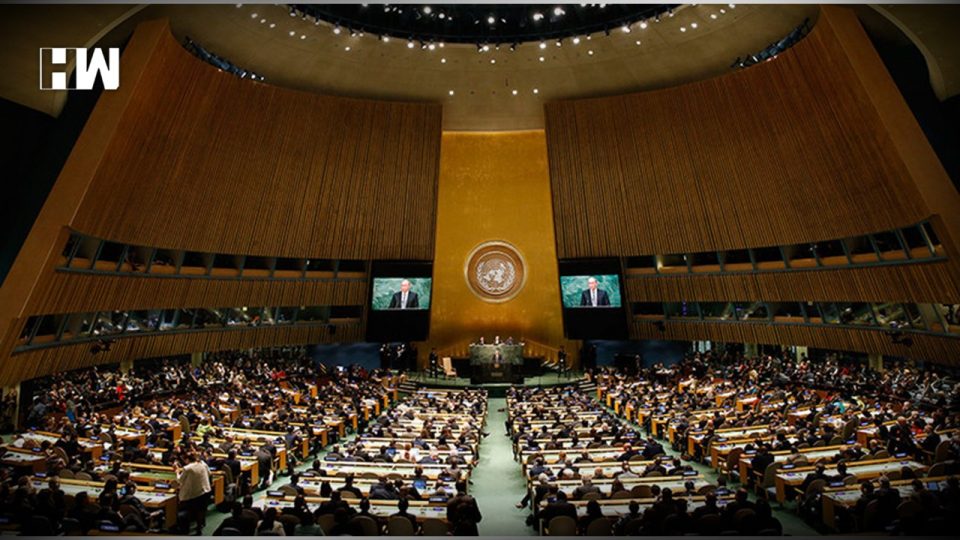The General Debate of the General Assembly, traditionally the most high-profile UN event of the year, will be a slimmed-down affair this September, with world leaders staying away from New York, and contributing set-piece speeches via video link, a UN spokesperson confirmed on Thursday.
The new virtual format is largely due to the ongoing COVID-19 pandemic with many countries continuing to grapple with the health, social and economic fallout from the crisis.
While the number of new cases of COVID-19 in New York has dramatically fallen, since the city was for a while the global epicentre of the pandemic in April, the US as a whole has almost four million reported cases, higher than any other country.
Pre-recorded speeches
In a press briefing on Thursday, Reem Abaza, Spokesperson for the President of the General Assembly, Tijjani Muhammad-Bande, said that each Member State, Observer State, and the European Union, was invited to submit a pre-recorded video, delivered by its designated high-level official, which will be played in the General Assembly Hall.
The Hall will not be empty, however: Ms. Abaza explained that the videos will be introduced by a representative of each State, who will be physically present.
The same procedure will apply for a series of special high-level sessions scheduled to take place, including a commemoration of the landmark 75th anniversary of the United Nations; a summit on biodiversity; and a meeting to commemorate, and promote, the International Day for the Total Elimination of Nuclear Weapons.
Ms. Abaza told correspondents that more details regarding the organization of this year’s events, including logistics, will be released “in due course”.
Side-events, such as New York Climate Week, are unlikely to welcome attendees to New York venues this year, following Mr. Muhammad-Bande’s suggestion that they should be moved online.
‘Silence procedure’
The decision to introduce pre-recorded videos to the High-Level General Debate, which takes place at the beginning of the 75th session of the General Assembly, was made by the UN body on Wednesday, using the novel ‘silence procedure’ method.
Under this method, draft resolutions are circulated by the President of the General Assembly, which gives Member States a deadline of at least 72 hours, to raise objections. If there are no objections, the President circulates a letter, confirming that the resolution has been adopted.
As an independent media platform, we do not take advertisements from governments and corporate houses. It is you, our readers, who have supported us on our journey to do honest and unbiased journalism. Please contribute, so that we can continue to do the same in future.

